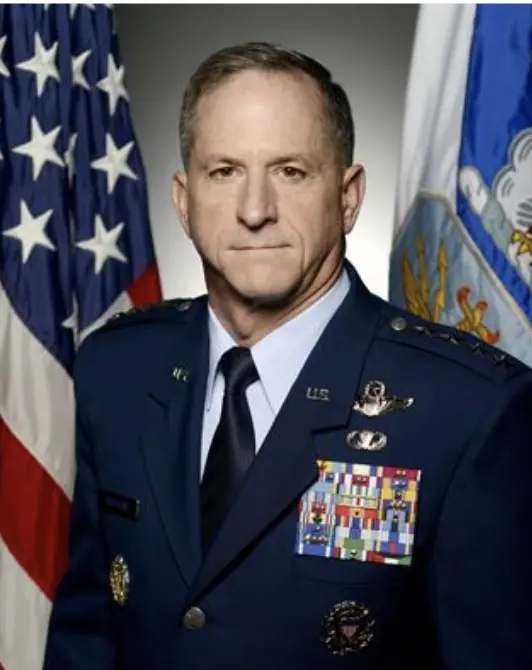By APD writer Melo M. Acuña
**MANILA, Dec. 8 (APD) ** – At least 18 countries were represented in this year’s Pacific Air Chiefs’ symposium at the PACAF headquarters at the Joint Base Pearl Harbor – Bickam in Hawaii.
In a teleconference hosted by the Asia Pacific Media Hub in Manila last Friday, December 6, Pacific Air Forces Commander General Charles Q. Brown, Jr and Chief of Staff of the US Air Force General David L. Goldfein said it was a significant gathering of commanding generals of various air forces representing at least over a million of pilots and airmen.
General Brown said the Indo-Pacific remains “the most consequential region in the world as it is the primary theater for the United States’ Department of Defense.”
General Charles Q. Brown, Jr., Commander of the U. S. Air Forces. (File Photo/US<edoa Hub/Manila)
He added the participants from various countries share a common belief among allies and partners that collaboration is required to meet the regional challenges that have global impacts.
“From cooperation to conflict, we are stronger together. Uniting our shared values, interests and security, we stand together to preserve peace and stability in the region,” said General Brown.
He added the symposium which began last Tuesday to Friday (December 3-6, 2019) was “heavily represented” because of the growing interest to find collective solutions to common problems within the Indo-Pacific.
General Brown said mutual respect and commitment our nations have to maintaining peace and stability in the Indo-Pacific Region. There were 50 bilateral engagements at the sidelines of the Symposium.
Asked by a newsman from Manila about the South China Sea issue, General Brown said there are competing claims within the area and there’s a different perspective about the South China Sea.
The issues involved included the freedom of navigation, freedom to fly and sail, General Brown explained.
He added the South China Sea is important because of its role in the economy, “not only for the region but globally.”
“And we all have an interest in how we preserve that security, and also looking at how we look at illegal activity as well,” he further said.
The South China Sea is central to aspects of the security within the region.
General Goldfein said their “policy has been fairly clear relative to what the President (Trump) has been saying on China.”
He explained Defense Secretary Mark Esper has been very clear on his comments on China.
“Our job at the end of the day is to arm our diplomats to be able to negotiate to a better place, because we provided them with credible military options that only we know we can execute, but just as important, any potential adversary knows that we can credibly execute,” he further said. He further said their job is to make sure they have wat they need to be able to negotiate to a better peace.
Asked about the Enhanced Defense Cooperation Agreement between the United States and the Philippines which has identified at least four air force bases in the Philippines, General Brown said they will not send troops to these military facilities because it is a mutually beneficial agreement “so we can actually look at how we build out the various airfields to support humanitarian assistance and disaster response.
“No there’s no military presence or U. S. military presence or expanding presence. It’s really how we equip those airfields to be able to support the Philippines, in particular the Philippine Air Force, and I think that’s a key part, and that a key part in the conversations with Lt. General (Rozzano) Briguez, the Philippine Air Force commanding general,” General Brown emphasized.
(ASIA PACIFIC DAILY)
 简体中文
简体中文

